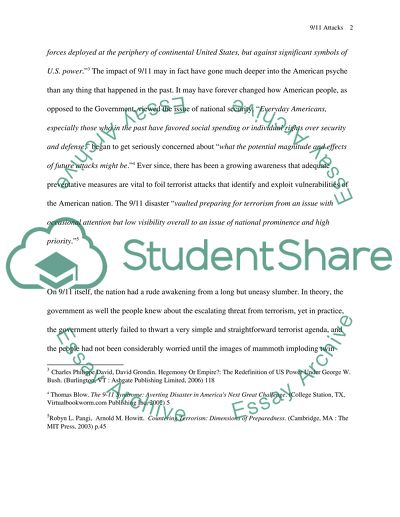Cite this document
(“9/11 Terrorist Attacks Essay Example | Topics and Well Written Essays - 1750 words”, n.d.)
Retrieved from https://studentshare.org/politics/1524871-911-terrorist-attacks
Retrieved from https://studentshare.org/politics/1524871-911-terrorist-attacks
(9/11 Terrorist Attacks Essay Example | Topics and Well Written Essays - 1750 Words)
https://studentshare.org/politics/1524871-911-terrorist-attacks.
https://studentshare.org/politics/1524871-911-terrorist-attacks.
“9/11 Terrorist Attacks Essay Example | Topics and Well Written Essays - 1750 Words”, n.d. https://studentshare.org/politics/1524871-911-terrorist-attacks.


